There is some vicious joy in seeing someone’s own rules backfire at them. Recently, a restaurant manager shared a story of dealing with a particularly uncompromising vendor. When a shipment of shrimp went missing, the supplier refused to credit it to the restaurant as they had “a strict policy about this.” Unfortunately for the vendor, the manager chose to be just as thorough as their policies demanded.
The Malicious Compliance subreddit is full of examples that prove the old saying “be careful what you wish for.” This story in particular went viral as other users shared similar experiences and general disbelief at the situation.
A restaurant manager discovered that a shipment of shrimp was missing from a delivery, so they contacted the vendor to let them know

Image source: gpointstudio (not the actual photo)
Instead, the vendor refused to cooperate with its long-term client, citing strict policies. So the manager hatched a plan
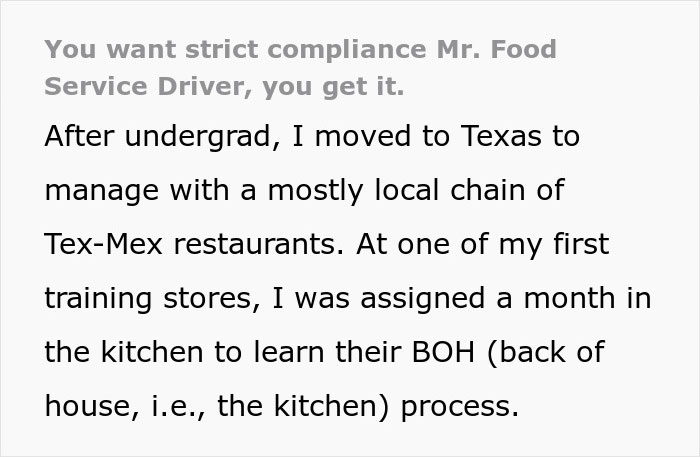
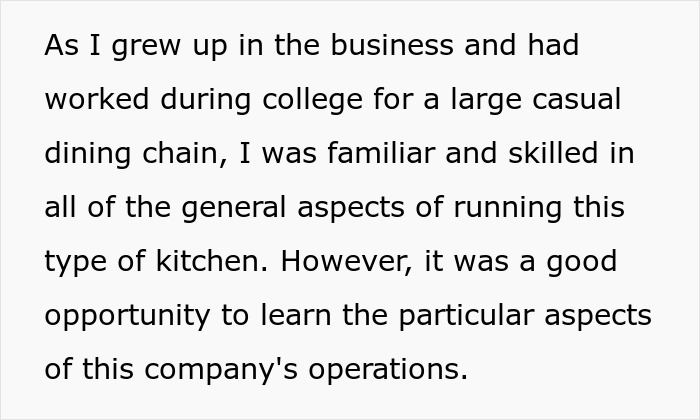
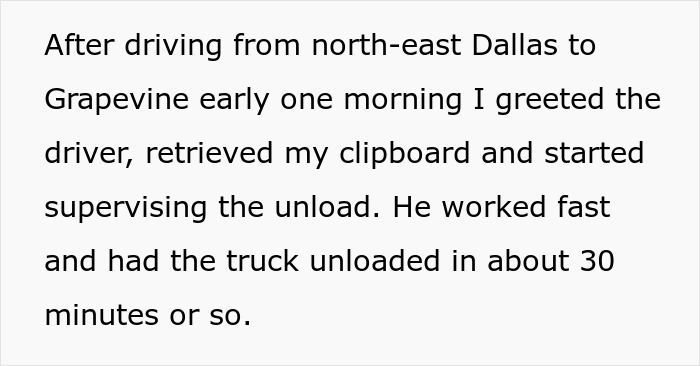
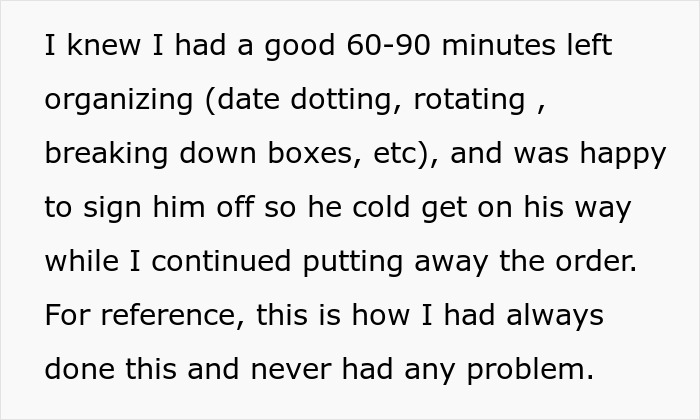
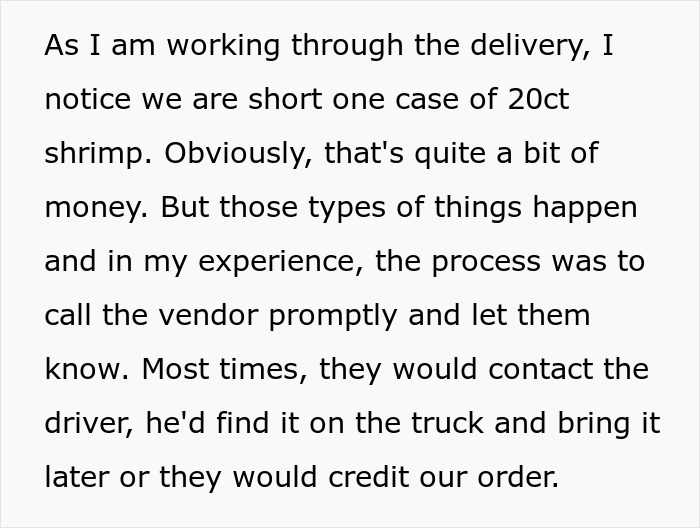
This missing shrimp led to hours of delays as the manager complied with the vendor’s policy

Image source: ikadapurhangus (not the actual photo)
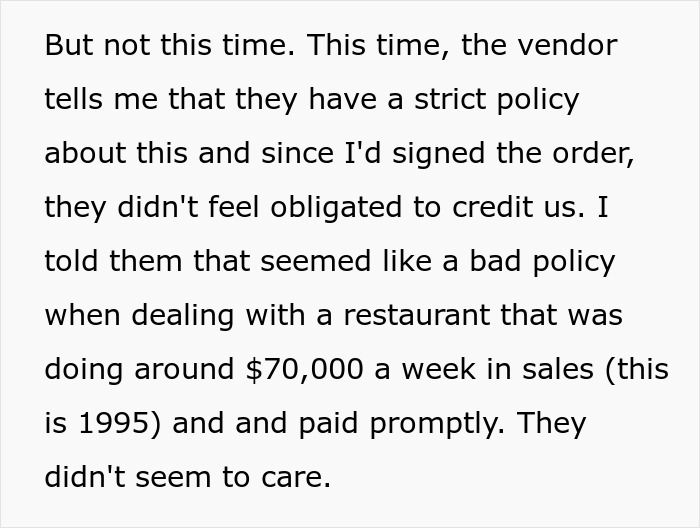
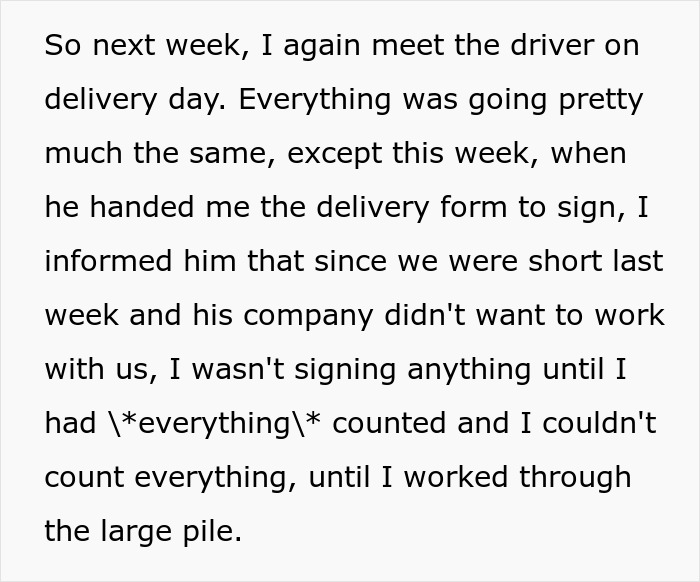
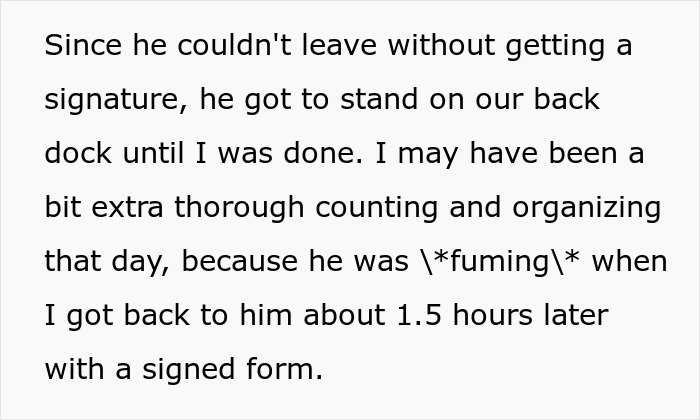
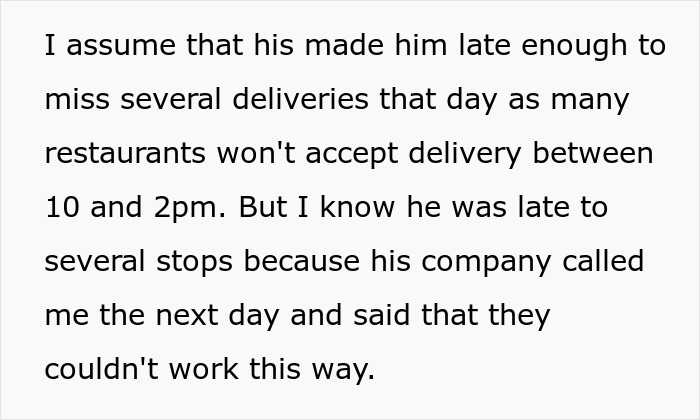
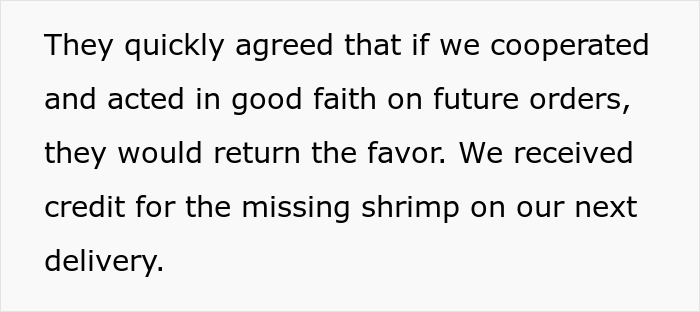
Image source: dawkc
Stubbornness can often ruin business relationships and just create more problems

Image source: seventyfourimages (not the actual photo)
The vendor’s inflexibility with a long-term, well-paying client may seem short-sighted. Because it is. Treating a regular, consistently paying customer poorly is a great way to no longer have a regular, consistently paying customer. Customer loyalty is generally quite hard to build. If you bought a car that would regularly break down, you might reconsider that manufacturer for your next purchase. A store that sells you produce that causes food poisoning is probably not going to keep you as a regular. Conversely, we all probably have a brand that we swear by for one reason or another.
The restaurant from the manager’s story probably worked with this vendor for a number of good reasons. While we may often think of loyalty as a decision, often enough it’s a matter of convenience. Some researchers call this ‘routinized loyalty’. If you need to pick up groceries on your way home from work, you will likely pick a store that is along your route. Similarly, a restaurant will prefer a long-term vendor because they already have experience with the logistical end of things. Routinized loyalty is also the easiest to establish since it’s often just a matter of circumstances. So losing it should hurt even more.
Dawkc’s story is a pretty clear example of how to break trust with a client or partner. At the start of their post, it’s mentioned that, as the manager, they were happy to sign off quickly to help the delivery person be on their way. There isn’t actually a benefit for the OP to doing this—after all, it meant that they did not get credit for the missing shrimp. It was just a sign of trust and good faith in the vendor that they had worked with for years.
Restaurants are stressful work environments as it is

Image source: Pylyp Sukhenko (not the actual photo)
In this particular story, the initial missing item did not seem to disrupt the cooking process, but missing ingredients are actually a common restaurant issue. If you’ve worked in a kitchen or you are an avid viewer of restaurant-based reality TV, you have probably heard someone ‘86’ an item. In kitchen speak, this is just a command from someone in charge to take the item temporarily off the menu. Most commonly, it’s used when the item runs out, but in fast-paced environments like kitchens, all sorts of things might happen; maybe someone dropped a bottle of wine or the meat supply went bad.
You might be wondering why it’s ‘86’ and not, say, ‘87’ or something more clear like “take the alfredo sauce off the menu!” Merriam-Webster believes that the term was originally to ‘nix’ an item and through rhyming slang it became 86. Often people would infer that restaurants, like police radio’s, use a lot of numeric codes, while in reality, most kitchen slang is just words and phrases. For example, to wax a table just means to give a specific table special treatment. Chef Mike often refers to a microwave, though it can also refer to an actual chef, named Mike. One wonders what those kitchens say as a substitute.
Other users expressed their disbelief at this unusual strictness and offered theories at why their policies were so unorthodox
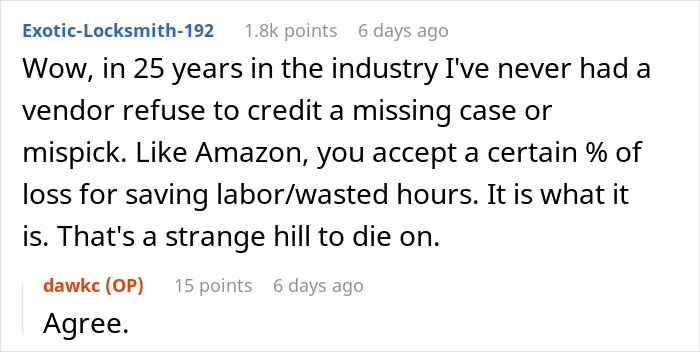
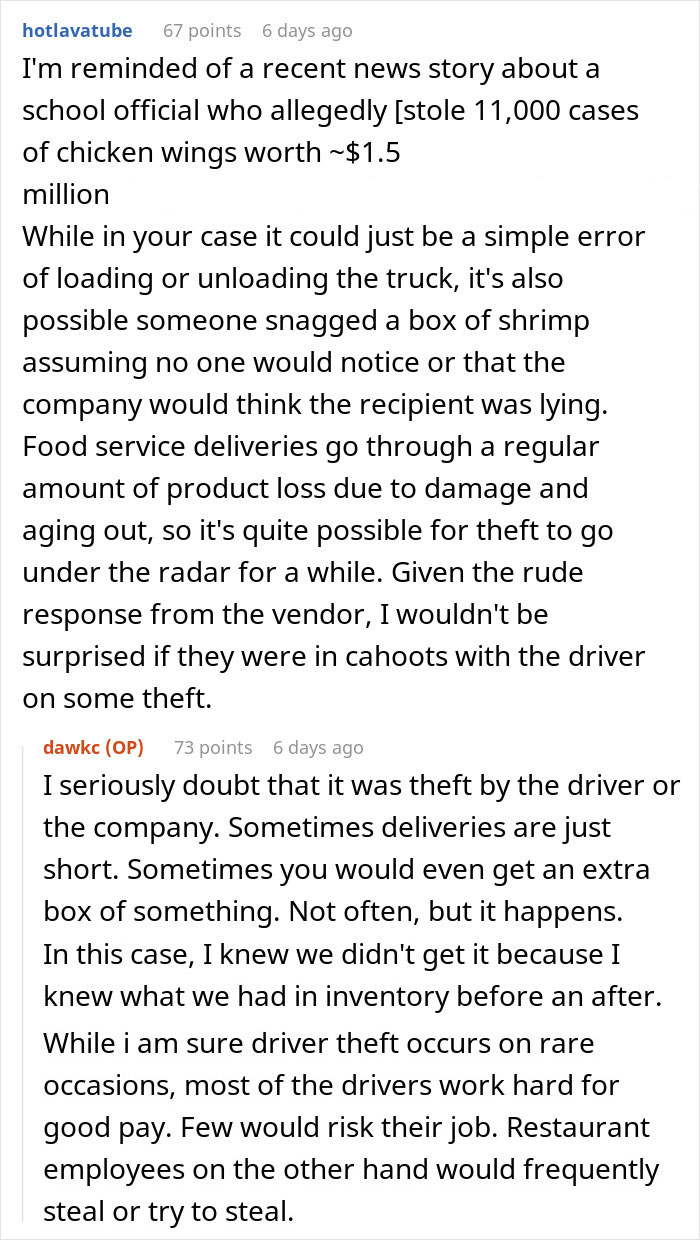

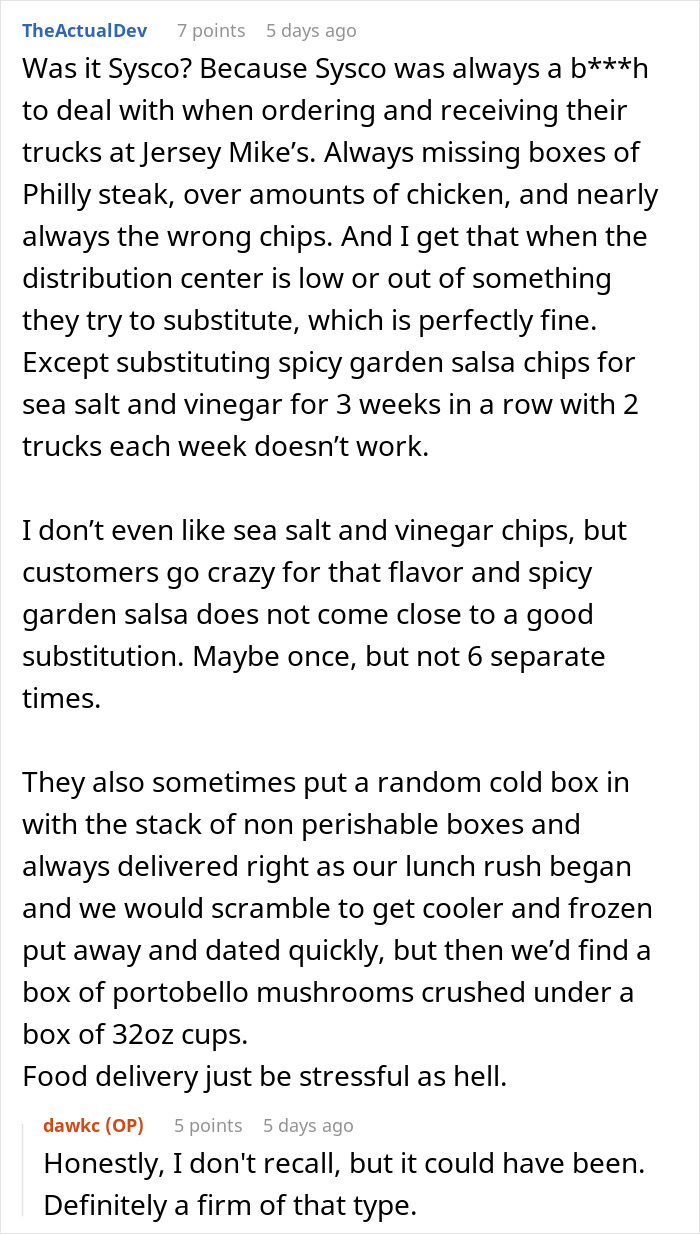
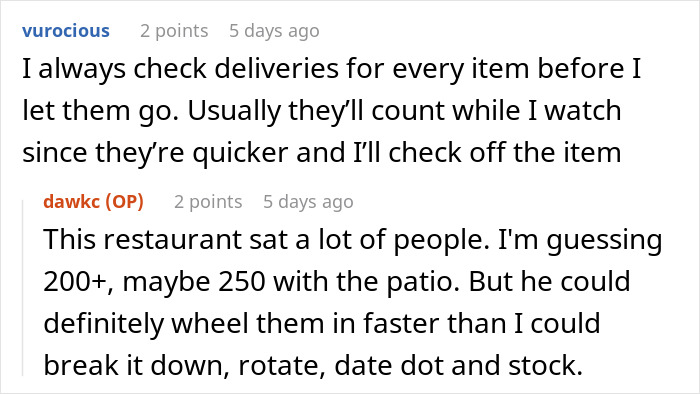

Some users also detailed their experiences with unusual restaurant deliveries
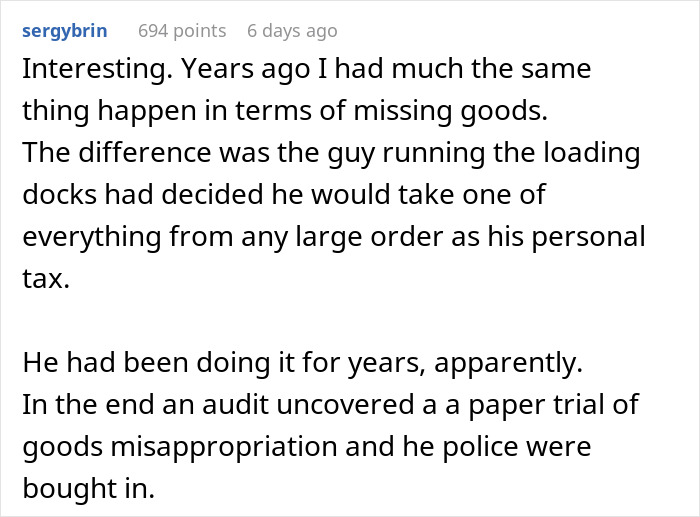
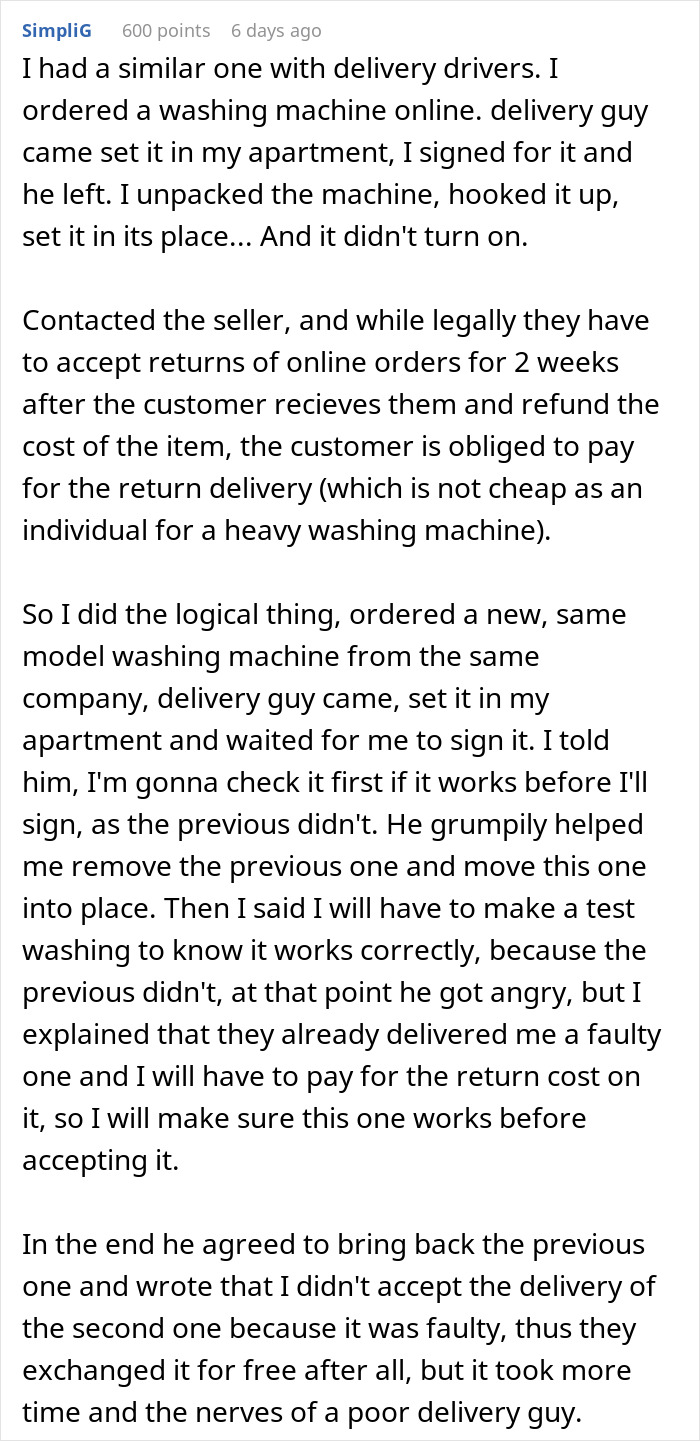
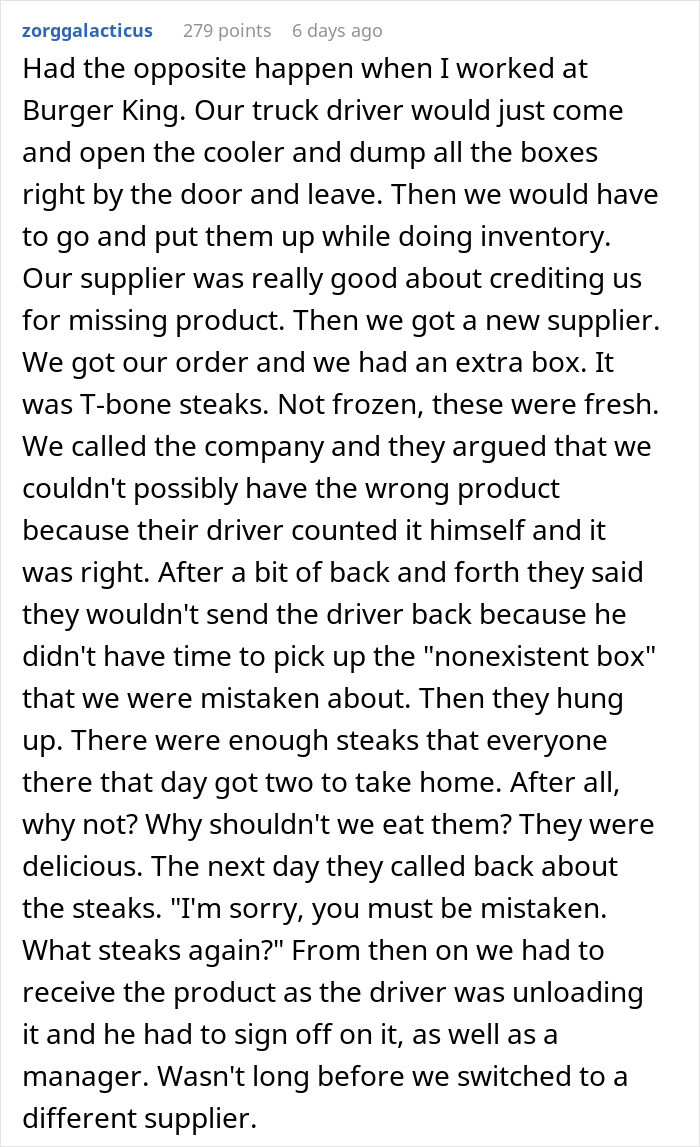
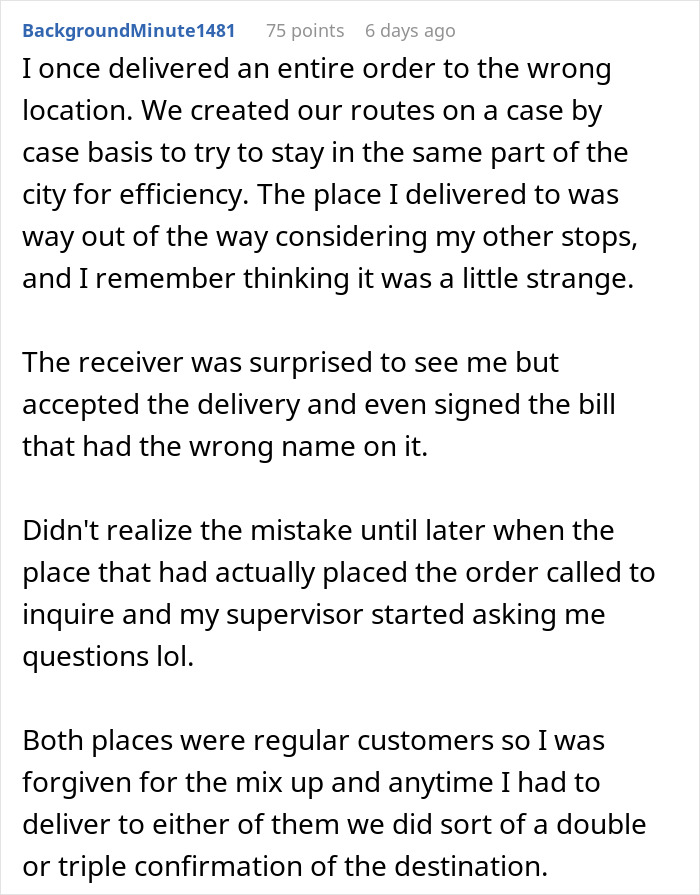

The post “You Want Strict Compliance Mr. Food Service Driver, You Get It”: Restaurant Manager Teaches Food Vendor A Lesson By Being Extra Thorough first appeared on Bored Panda.
from Bored Panda https://ift.tt/6vQ9COw
via IFTTT source site : boredpanda